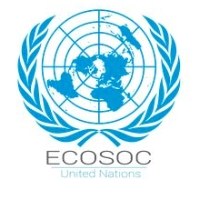On April 11th, representatives of the private sector, the civil society and governments gathered at the UN Partnership Forum to discuss how they can, together, best advance the Sustainable Development Goals (SDGs).
This year, in the concept note for the event, the organisers draw attention to the fact that the UN has changed its position on how best to achieve its 2030 goals, highlighting that now all stakeholders need to be involved in order for the targets to be realised, and not just the private sector.
“The last decade has seen partnerships in the field of sustainable development burgeoning and diversifying at an accelerated rate. Sustainable Development Goal No.17 recognizes the critical importance of multi-stakeholder partnerships for the achievement of the SDGs in all countries” ECOSOC said.
SDGs are a series of targets set out by the UN which aim to tackle the biggest issues facing the planet. The goals are to be achieved by the year 2030, and would hope to accomplish the eradication of wide-spread hunger, disease, denial of education, as well as fostering improvements in the rights for women and girls around the globe, combating the growing risks of climate change, and host of other items.
Speaking in the welcoming remarks for the day, UN Deputy Secretary-General, Ms. Amina Mohammed, reminded participants of the many continued threats facing the world today. “Climate change is ravaging the planet staggering numbers of children and youth especially girls and young women still lack access to basic education and healthcare services, [and] people in many countries are starved of economic opportunities” she said. Ms. Mohammed made clear that while the “task is immense“, many of the pathways to change are in “plain sight“, adding that while “success is still possible“, it requires difficult conversations on “the need to fill partnership skillset gaps, tackle financing shortfalls, and address data deficiencies“.
Ahead of the World Economic Forum, Lise Kingo, Executive Director of UN Global Compact, the global corporate sustainability initiative that calls companies to do business responsibly, took the floor to encourage companies to take action to implement the SDGs. She stressed that local partnerships between governments, companies and the UN were key to scale impact and enforce sustainable development.
The event involved many representatives from the private sector. Sitting beside Ms. Kingo were representatives of OCP Group, a Moroccan company and a world leader in the phosphate fertilizer industry. The Group’s representative outlined a number of OCP initiatives that comply with the SDGs while highlighting that a core part of OCP’s overall philosophy is the building of robust ecosystems in all the communities in which the Group operates.
One of OCP’s key initiatives is its Circular Economy Program to preserve scarce and vital resources such as water and biodiversity while promoting clean energies. Another key initiative launched by OCP is its Act4Community Program that shows OCP’s commitment to have a strong and sustainable local social impact. This program encourages OCP’s workforce to contribute in its ecosystem by fully supporting local communities to create sustainable economic projects and partnerships and to encourage the creation of startups, diverse entrepreneurship projects, etc.
The session moderator, Robert Skinner, who is also the executive director for UN partnerships, said that it was “important and nice to see the private sector more and more enthusiastic about the goals” and that OCP Group had “just about covered each of the 17 [sustainable development] goals” with what the Group mentioned.
Norine Kennedy, of USCIB, spoke during the event on behalf of the International Organization of Employers, to draw attention to the importance of pursuing inclusive business involvement in advancing UN aims and initiatives. “In light of the substantial challenges ahead in the UN 2030 Agenda for Sustainable Development, we should open the doors wide to partnership with the private sector“, she said.
Ann Cairns, Vice Chairman of Mastercard, highlighted the need to enable the frameworks of partnerships to grow, stating that the challenge is to “build out an ecosystem that works, country by country, for partnerships, and people have to be able to use that system“.
The conference also included the UN Secretary-General’s Envoy for Youth, Ms. Jayathma Wickramanayake, who conveyed much of the conclusions of the recent UN Youth Forum. She called for a new collective approach to resolving the world’s challenges, and an increase to efforts made by the international community, in particular, actions in tackling climate change.
Speaking during the closing session, ECOSOC President, Inga Rhonda King discussed how the day demonstrated that multi-stakeholder partnerships are helping to implement the 2030 Agenda. She noted that participants had shown examples of how more governments are trying to develop partnership platforms which facilitate a society-wide approach. And finally, she expressed hope that the forum would continue to encourage and promote dialogue among partners and member states.
The events of the week, and other discussions, are part of the ongoing UN initiative to improve the efficacy of its own efforts, with a progress report regarding implementation to be issued to member states around the 21st of May 2019.


